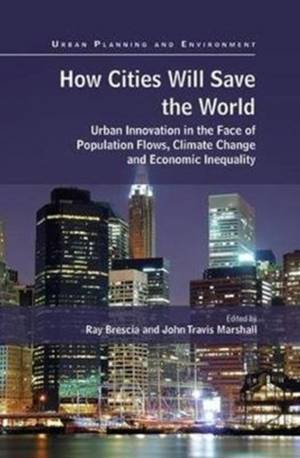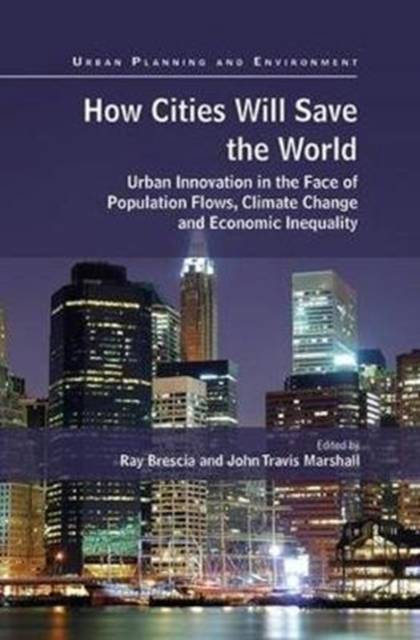
- Afhalen na 1 uur in een winkel met voorraad
- Gratis thuislevering in België vanaf € 30
- Ruim aanbod met 7 miljoen producten
- Afhalen na 1 uur in een winkel met voorraad
- Gratis thuislevering in België vanaf € 30
- Ruim aanbod met 7 miljoen producten
Zoeken
How Cities Will Save the World
Urban Innovation in the Face of Population Flows, Climate Change and Economic Inequality
Ray Brescia, John Travis Marshall
€ 75,95
+ 151 punten
Uitvoering
Omschrijving
Cities are frequently viewed as passive participants to state and national efforts to solve the toughest urban problems. But the evidence suggests otherwise. Cities are actively devising innovative policy solutions and they have the potential to do even more. In this volume, the authors examine current threats to communities across the U.S. and the globe. They draw on first-hand experience with, and accounts of, the crises already precipitated by climate change, population shifts, and economic inequality. This volume is distinguished, however, by its central objective of traveling beyond a description of problems and a discussion of their serious implications. Each of the thirteen chapters frame specific recommendations and guidance on the range of core capacities and interventions that 21st Century cities would be prudent to consider in mapping their immediate and future responses to these critical problems. How Cities Will Save the World brings together authors with frontline experience in the fields of city redevelopment, urban infrastructure, healthcare, planning, immigration, historic preservation, and local government administration. They not only offer their ground level view of threats caused by climate change, population shifts, and economic inequality, but they provide solution-driven narratives identifying promising innovations to help cities tackle this century's greatest adversities.
Specificaties
Betrokkenen
- Auteur(s):
- Uitgeverij:
Inhoud
- Aantal bladzijden:
- 312
- Taal:
- Engels
- Reeks:
Eigenschappen
- Productcode (EAN):
- 9781138490321
- Verschijningsdatum:
- 15/01/2018
- Uitvoering:
- Paperback
- Formaat:
- Trade paperback (VS)
- Afmetingen:
- 154 mm x 234 mm
- Gewicht:
- 476 g

Alleen bij Standaard Boekhandel
+ 151 punten op je klantenkaart van Standaard Boekhandel
Beoordelingen
We publiceren alleen reviews die voldoen aan de voorwaarden voor reviews. Bekijk onze voorwaarden voor reviews.











